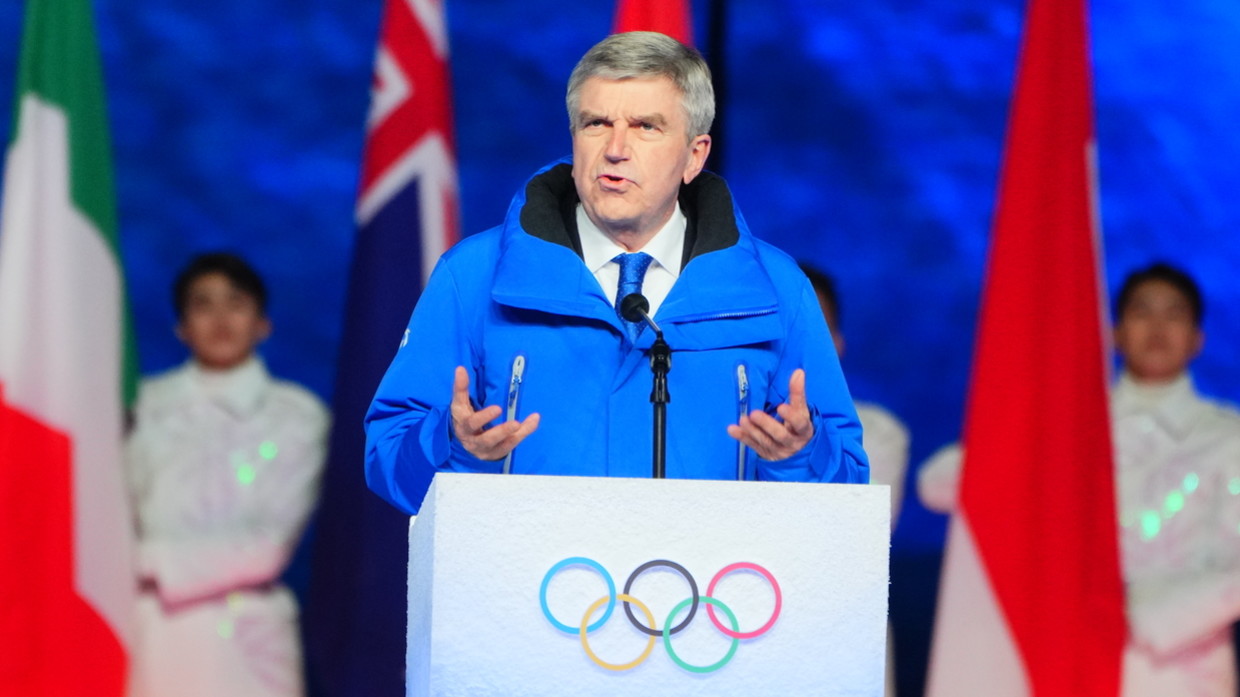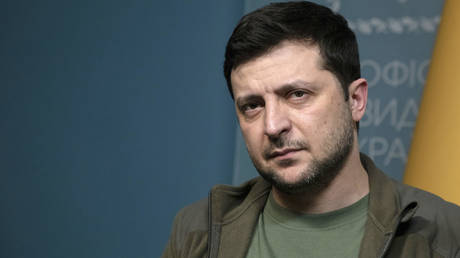The Russian Olympic Committee (ROC) has attacked “the escalation of anti-Russian hysteria” in sport as the organization leveled accusations of hypocrisy against international Olympic officials. The message came after International Olympic Committee (IOC) president Thomas Bach met Ukrainian President Volodymyr Zelensky.
Bach visited Ukraine at the weekend, where he was seen meeting athletes and being hosted by President Zelensky. The Ukrainian leader used the opportunity to demand the continued exclusion of Russians from world sport, arguing there is “no place” for them.
At the end of last week, Polish Sports and Tourism Minister Kamil Bortniczuk said that counterparts from more than 30 other nations had signed a declaration calling for even more restrictions on Russian and Belarusian sport, including the suspension of their memberships in international organizations and a ban on broadcasts of global events in the two countries.
Responding to the latest developments, Russian Olympic officials issued a statement on Monday which condemned what they described as continued political interference in sport, to the detriment of Russian athletes.
“For more than four months, the ROC [Russian Olympic Committee], despite the unprecedented pressure on the Russian sports community and unlawful sanctions against Russian athletes, continues to prove its commitment to the letter and spirit of the Olympic Charter, to uphold the true Olympic values,” read the message issued on the ROC website.
“Unfortunately, the forced escalation of anti-Russian hysteria continues. This happens in the absence of any reaction to the widespread interference of Western state structures in the affairs of NOCs [National Olympic Committees], which are ordered to support restrictions and suspensions on a national basis, and are forbidden to participate in competitions where Russians compete.”
The ROC said that despite the exclusion of Russian athletes from various competitions, it continues to promote the Olympic values of unity and friendship through sport.
“It is noteworthy that just a week earlier, the Russian Olympic Committee held events in Kursk dedicated to the celebration of the All-Russian Olympic Day, which was attended by thousands of residents of the city and guests from neighboring regions,” said the statement.
“As before, children, adults, and fans of Team Russia took part in amateur competitions, got to meet Olympic champions and prize-winners of different years, and tried various sports disciplines.
“Despite everything, all this was for the sake of unity, friendship, mutual understanding – as always, the Olympic Day was dedicated to these universal values,” added the letter.
“And yesterday, Ukrainian rockets flew into residential areas of the Kursk and Belgorod regions. As a result of the shelling, dozens of residential buildings and civilian infrastructure were destroyed, citizens of the Russian Federation and Ukrainian refugees were killed and wounded, who may also have participated in the Olympic Day events.
“Maybe now colleagues from international sports organizations will also want to visit Kursk or Belgorod?” the message continued, appearing to take a swipe at Bach’s meeting with Zelensky despite the IOC’s claims that politics should not undermine sporting principles.
“Moreover, this is not far from the long-suffering Donbass, where the genocide of the local population has continued for the past eight years, and the concept of ‘refugees’ has become firmly established in everyday life. As in the countries of the former Yugoslavia, in Syria, in Libya, Afghanistan, Yemen...
“The rhetoric that we hear from high tribunes, as well as restrictions on Russian sports, indicate that the unity of the Olympic movement and a non-discriminatory approach to all its participants in the current situation are being denied under the pressure of a destructive agenda.
“Recent statements and actions by the IOC continue to testify to the unprecedented external interference of forces that are far from the true ideals of sport and Olympic values.
“But one of the main tasks of the International Olympic Committee remains ‘taking measures aimed at strengthening the unity of the Olympic Movement, protecting its independence, maintaining and promoting its political neutrality and preserving the autonomy of sports’, as well as ‘countering any form of discrimination that is detrimental to the Olympic Movement’.
“The ROC invariably calls on the IOC and international sports organizations to equally protect the rights and legitimate interests of all athletes without exception,” it concluded.
Russian and Belarusian athletes have found themselves sidelined across numerous sports following an IOC recommendation on February 28 that they should be barred from international events because of the conflict in Ukraine.
IOC chief Bach has consistently defended that stance, claiming that bans partly protect athletes from the supposed aggression they would face when competing abroad.
Many figures in Russia have decried the measures imposed against the nation’s athletes as discriminatory, finding them hard to reconcile with IOC’s claims that they are protecting Russian athletes rather than targeting them.
Speaking last month, Bach claimed that the IOC should try to avoid pressure from governments in its operations.
“Our cause is to do everything that we keep sport beyond this political trend, that our mission is not a political mission, but a humanitarian mission. We can only accomplish this if the political authorities respect it,” said the German.
Meeting Zelensky in Ukraine on Sunday, Bach was quoted as saying that “the time has not yet come to lift such a ban” on Russian and Belarusian athletes.
The IOC also announced a tripling of its aid fund for Ukrainian athletes to $7.5 million, in the hopes that the Ukrainian flag would “fly high” at the Olympic Games in Paris in 2024 and at the Winter Games at Milano-Cortina in 2026.


